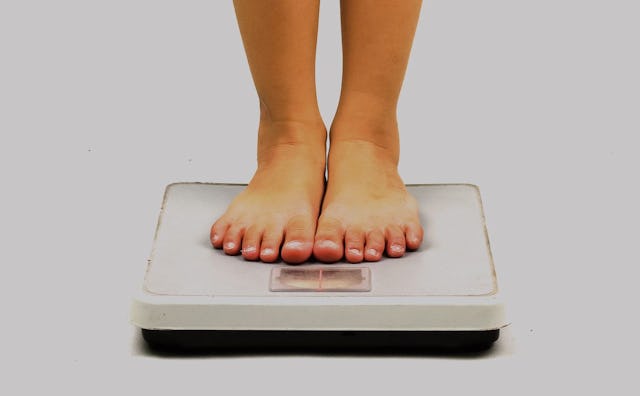Should Schools Send Home 'Body Report Cards'?

Dr. Kevin A. Gee, an assistant professor of education policy at the University of California at Davis and the author of the study, compared a group of kids whose weight had been evaluated to a group who hadn’t endured the weigh-ins. He found that students whose families had gotten the letters showed no improvement in BMI compared to the kids who hadn’t been screened.
Schools should not be weighing their students—schools are not health-care providers. Yes, schools do monitor vision and hearing, but those aspects differ from BMI in two important ways. One, your eyesight and your hearing don’t carry the same level of shame and stigma that one’s weight does. I am fine reading an eye chart, stopping at the second line and revealing my near-sightedness for all to see. Same with my (admittedly supersonic, if I may boast) hearing.
Second, problems with one’s vision and hearing usually have a protocol for treatment: You get glasses or a hearing aid. Obesity is an enormously complex problem with no clear answer. In fact, the only thing that does seem clear is that diets don’t work—leaving kids with the question, “Well, what am I supposed to do with this information, besides feel terrible?”
As a weight-conscious teenager, I can tell you that being weighed by a school nurse or administrator (sometimes with other kids in the room) would have been a recipe for shame and embarrassment. It might have made me run a few sad laps around the track and skip a couple meals…at least until hunger forced me into a binge. It would have had absolutely no long-term effect on my waistline.
If there’s one thing that drives me crazy about our discussions of weight, obesity and health, it’s how negatively everything is framed. Some food is “bad.” We are bad if we eat bad food. We are weak if we don’t have the willpower to resist sweets or junk food. We talk about food in moral terms.
But the culprits of the obesity crisis are manifold and really hard to address. For one, unhealthy food is cheap food, and families trying to survive on a tight budget are forced into unhealthy choices. For another, many parents are working longer hours than ever before, which means that our time to fondle tomatoes at the farmer’s market and sauté up a ratatouille is, um, pretty limited. The food industry spends billions of dollars designing “hyper-palatable” foods that leave us craving more. We don’t have a lot of time or opportunity for pleasurable exercise, and incorporating it into daily life, by say, walking to school, is hampered by the fact that kids don’t have safe routes to school or live too far away to travel on foot.
In other words, let’s stop blaming kids (and ourselves, for that matter!) for their weight—when they had no part in setting up the systems that led to the obesity crisis in the first place. I myself have had a lot more success in controlling my weight when I’ve framed things in a positive way: What vegetables can I cook tonight that would be delicious? What exercise would be fun today? These are the kind of messages we—as parents, but also as teachers and as adults in the community—should be giving our kids: Fresh, unprocessed food is delicious. Exercise is fun. Life is worth enjoying. Your weight is your weight. There’s no place for shame.
This article was originally published on